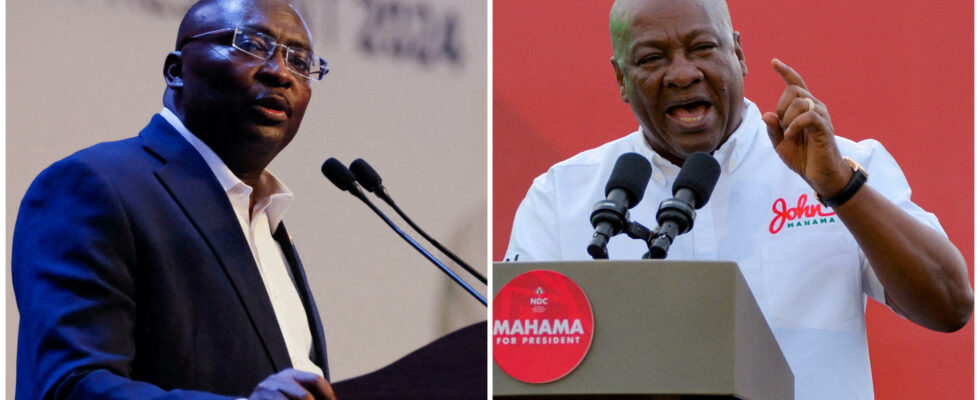This Saturday, December 7, nearly 18.8 million of Ghana’s approximately 34 million people are called to the polls to elect their president and parliamentarians. A double vote in a climate of economic crisis and political and social tensions. Explanations.
“Elections 2024 – your vote, your future. » This is the slogan of the Electoral Commission of Ghana. Its goal: to encourage the nearly 18.8 million people registered on the lists to go to the polls on December 7, the date of the first round of the general elections – a second round will take place, if necessary, in the following 21 days.
This double vote will make it possible to renew Parliament. But it will also and above all mark the end of the second and last mandate of Nana Akufo-Addo (2017-2024), 80 years old, at the head of this state rich in raw materials (cocoa, gold, oil) and considered a model of political stability in West Africa although mired in a deep economic crisis.
Two favorites accustomed to power
To succeed him, 12 applications were validated*. But in a country which, since the democratic transition of 1992, has been led alternately by the New Patriotic Party (NPP) and the National Democratic Congress (NDC), the suspense seems limited to the following question: who is Mahamudu Bawumia, vice-president? president of Akufo-Addo since 2017 and candidate of the ruling party (NPP), or of John Mahama (NDC), a former president (2012-2017) who wants to find his position, will be in charge for the next four years?
Also readThe big guest Africa – Presidential election in Ghana: “The advantage could go to former President Mahama”
On one side, we find a 61-year-old seasoned economist: the latter advocates the digitalization of activities to get Ghana out of the impasse but his government has proven powerless in the face of the slump which has lasted for five years. On the other, a 66-year-old political veteran: John Mahama promises to “ return the country to its previous state » Akufo-Addo but his own mandate was marked by financial problems and corruption cases.
“ The two major parties can still count on millions of supporters »
In this context, can the two sixty-year-olds attract the crowds to the voting booths? The participation rate in the presidential and parliamentary elections was 79% in 2020 and 2012 and 69% in 2016.
“ It is clear that after two alternations, Ghanaians are a little disappointed with the two main political parties, mainly because they have not been able to fulfill their missions, particularly in terms of managing the economy on issues such as creating jobs, reducing inequality or keeping prices lowunderlines Lionel Ossé Éssima, political research analyst for the CDD-Ghana observatory, based on data from the Afrobarometer polling institute. However, even though both parties have been unable to deliver on their promises, the Ghanaian political landscape is so polarized between the NDC and the NPP that both parties can still count on millions of supporters across the country.. Added to this is the fact that small political groups do not seem to be well organized or do not have the same resources as the two “monsters” to mobilize people across the country. »
Young people, X factor of the vote?
The few other candidates who have emerged in recent months (Nana Kwame Bediako, Alan Kyerematen…) indeed seem to be out to collect crumbs. The latest polls also predict a close result between Bawumia and Mahama.
Under these conditions, to decide between the two favorites, the youth vote promises to be preponderant, in a country where 56% of the population is under 25 years old and where the median age is 21 years old.
John Osae-Kwapong, project director at the think tank The Democracy Projectthinks precisely that this age group will be there on December 7: “ According to the most recent empirical data available, published in October, on abstention, 19% of 18-25 year olds indicate that they will not vote. Eight in ten say they will vote. This is a good figure to confirm that younger voters are showing real interest in these elections. Also judging by historical data, this demographic has generally shown interest in voting. »
On the other hand, the researcher struggles to know if young people can influence the public debate and the campaign: “ The weight of young people in our political spaces is quite difficult to assess, mainly because we do not observe mobilization and collective action efforts on the part of young people to pursue key political objectives. The two political parties [majeurs] have youth wings and networks within our higher institutions, but their activities are generally designed to support political parties. »
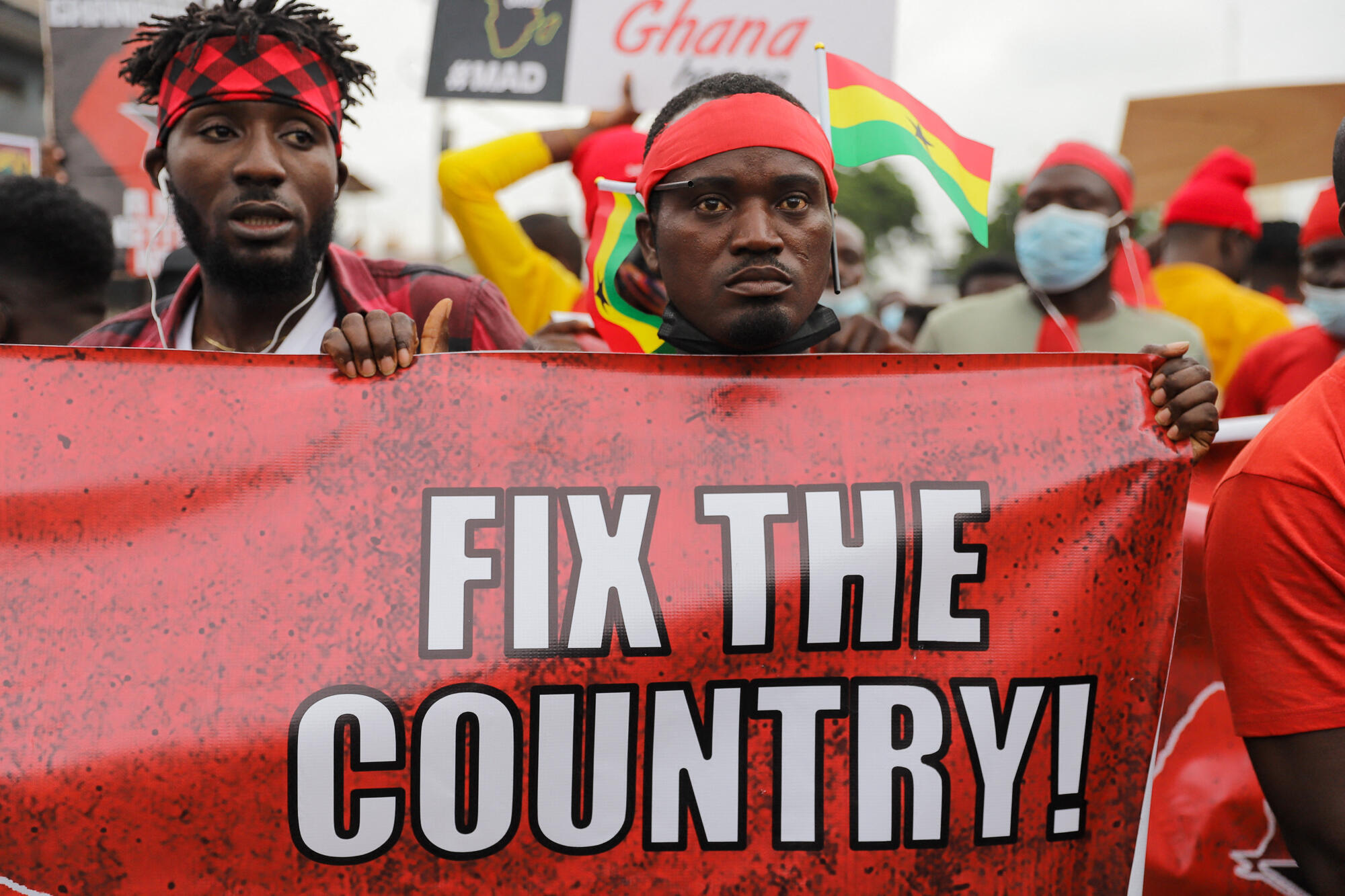
“ No one is campaigning against the degradation of our rivers »
In recent years, however, protest movements have been partly led by young people and civil society, such as #FixTheCountrywhich has been calling for more social justice, transparency and better governance since 2021.
In recent months, the debate on water pollution caused by illegal gold panning – “galamsey” – has re-emerged. Thousands of Ghanaians marched in the streets to demand drastic regulation of gold mining. An environmental fight joined by trade union and religious organizations. But this demand found a limited response from the government.
Also readRefining gold on site, Ghana’s complicated challenge
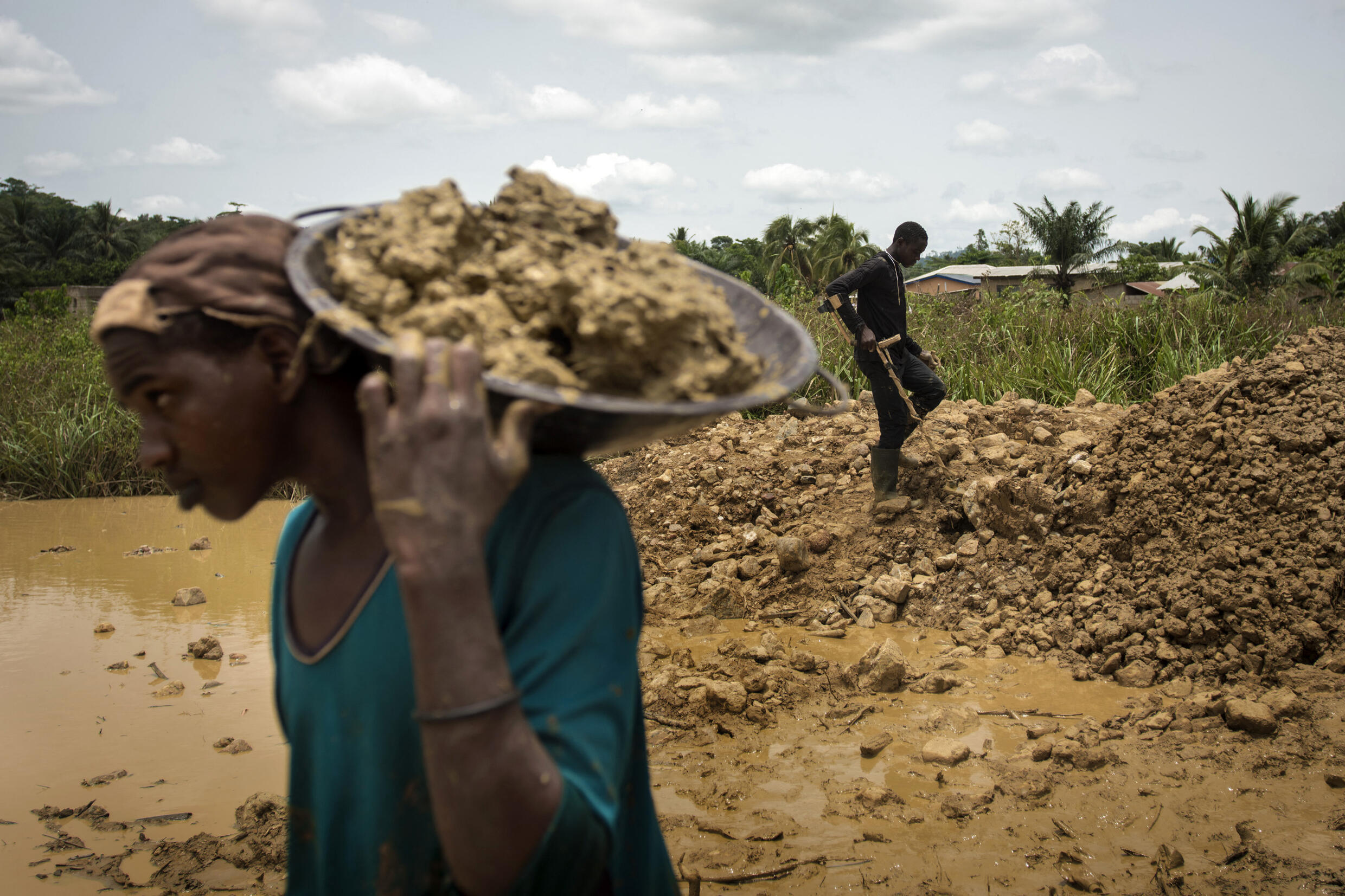
A climate of social and ecological unrest to which the presidential and legislative elections of December 7 will not respond, says star musician Wanlov The Kubolor, also known for his commitment against homophobia. “ No one is campaigning to stop what is happening to our rivers. This is what the NPP, the party of the current president, did eight years ago, when it declared that it would prevent the NDC from carrying out its illegal mining activities. And he just came to take over and now all our rivers are ruinedannoys the 44-year-old singer. I don’t think anything has changed. The ruling party wants to pursue corruption. And the NDC wants to take over. Everyone just wants to keep going. I don’t see any hope. »
Also readGhana: “The atmosphere, from the top of the state to the ordinary citizen, is very homophobic at the moment”
“ Difficult years still lie ahead »
Environmental considerations are, in fact, relegated to the background by the country’s economic debacle: it has established 18 agreements with the International Monetary Fund (IMF) since 1957, it ranks 145th (out of 193) in the Index. of human development, almost a quarter of Ghanaians suffer from poverty, consumer price inflation is still 22% (54% in 2022) and the unemployment rate is more than 14% (nearly 29% among 15-24 year olds). “ I think our situation has gotten worse since 2020 with the Covid-19 pandemic and the Russia-Ukraine conflictagrees Godfred Bokpin, professor of economics and finance at the University of Ghana. Things have generally deteriorated for Ghanaians: the cost of living, unemployment… Poverty has increased, as has inequality. “. A delicate situation despite the significant resources of Ghana, the world’s second largest producer of cocoa and sixth largest in gold.
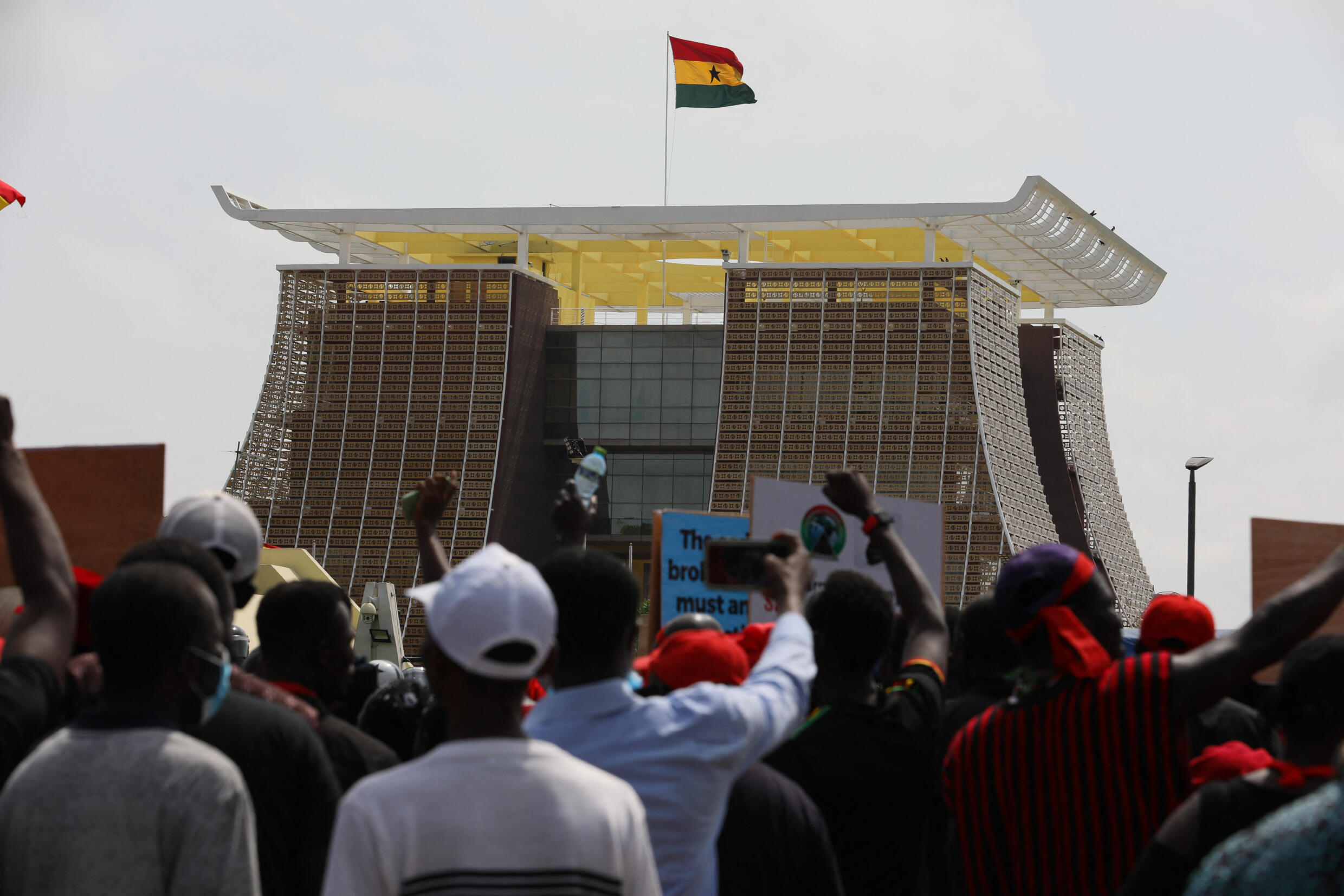
The cause, in particular, is an external debt which, despite restructuring, still represents 83% of Ghanaian GDP. Godfred Bokpin continues: “ Regardless of which party wins the election, our economy has fundamental problems and weaknesses. So I still think there are difficult years ahead of us. »
A conclusion which contrasts with that of the IMF. The financial institution, which highlights “ notable progress in debt restructuring » released on December 2, 2024 a new tranche of aid (360 million dollars) out of the 3 billion promised in May 2023.
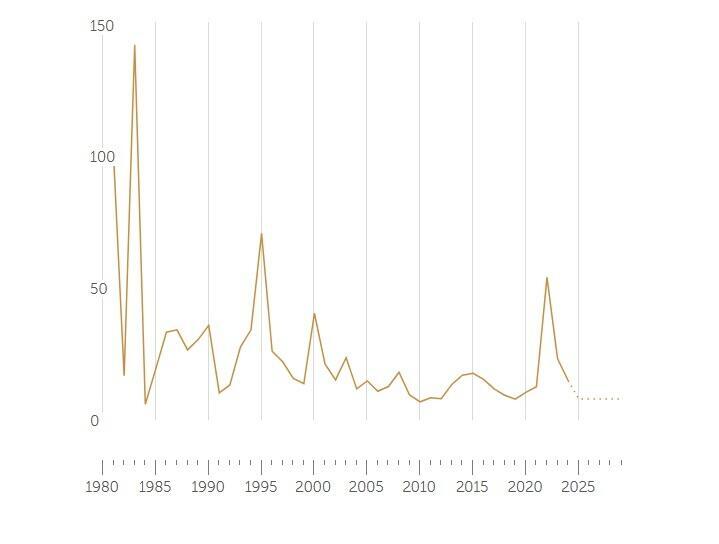
“ The most important elections in Ghana’s recent history »
Despite all these vicissitudes and the few encouraging prospects, Bright Ackwerhartist critical of the authorities, will vote on Saturday. “ Ghana’s December 7 elections are actually the most important elections in its recent historysays the one who caricatures the elites with caustic drawings. Without exaggeration, for many people it actually looks like 1957 [année de l’indépendance, NDLR]. We are struggling again to free ourselves from a kind of inhuman domination. But this time it is the dominance of elected politicians and their friends and families who have managed to take over the state and all that it has to offer. »
Bright Ackwerh concludes: “ The interest shown in the polls seems low because the previous elections also held the promise of getting us out of rotten situations and they failed. »
A cartoon by Bright Ackwerh (bottom left) showing Nana Akufo-Addo (right) being manhandled by Ghanaians, in reference to a festival during which the president was booed in 2022.
* A 13th candidate, Akua Donkor (Ghana Freedom Party), died suddenly on October 28 from a health problem.
